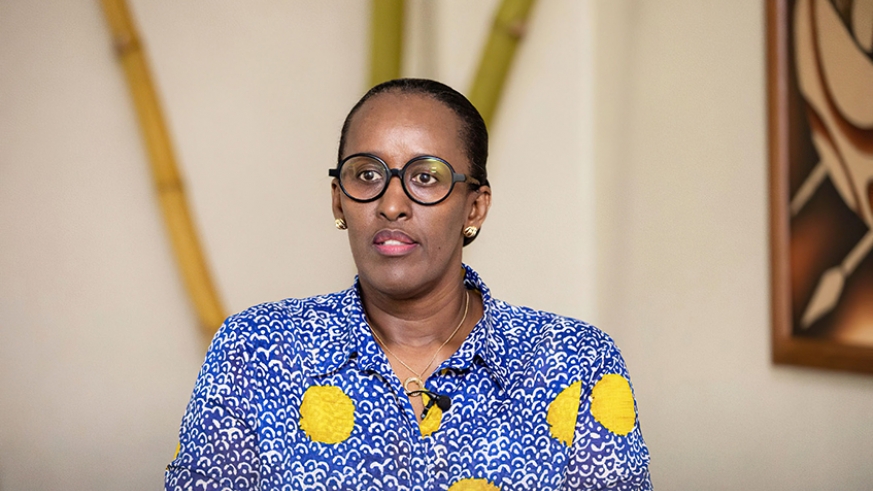Mrs. Kagame made the remarks on Friday October 23 during the 9th annual Meridian Summit, an international event that convenes diplomatic, business and policy leaders in a neutral, nonpartisan forum to exchange ideas and collaborate on solutions to today’s most pressing global challenges and opportunities.
This year’s summit looked at Global Health Diplomacy, and the problem-solving required for international cooperation.
It looked at among other things, the global response to Covid-19, actions that multinational, national and local governments need to take in this regard, and the decision-making processes and the relationships that will be necessary to implement the policies.
Speaking at the event, Mrs. Kagame shared a number of lessons that the world can pick from the pandemic, among which is the importance of international collaboration and increased global health diplomacy.
“Covid-19 is one of those health pandemics that rapidly transcend national borders and affect multiple sectors. It goes without saying then, that global health diplomacy at a time such as this is imperative. We need to build national, regional and international solidarity to overcome the unparalled impact of the Covid-19 pandemic which has forced us all to reimagine old structures and has accelerated the need for innovative diplomacy efforts,” she said.
“By leveraging partnerships among governments, the scientific and research communities, private sector, innovators and civil society we can promote the sharing of evidence and best practices to fight the pandemic, revamp our economies, build trust and strengthen the spirit of solidarity in these very trying times.”
She appreciated new levels of diplomacy and international solidarity that have been forged in the fight against Covid-19, giving an example of the Covax Global Access, a multilateral initiative that has committed to provide the Covid-19 vaccine to cover 20 per cent of the populations of interested countries regardless of their ability to pay.
She also told the participants about Rwanda’s strategy of dealing with the pandemic, which leaned on collaboration among the country’s sectors.
“From the onset was to lean towards a coordinated and multi-sectoral approach in order to stand a wider chance at containing this fast spreading pandemic.”
Thus, she explained, the government set up a national crisis committee of key ministries and a Covid-19 joint taskforce to guide our preparedness and response plan.
The pandemic has taught the country that the health sector can no longer solve health issues alone, she said.
She also appreciated healthcare professionals across the world, saying they have been the most exposed “yet they remain at the forefront of this novel pandemic with insufficient knowledge of its full dimension.”
“The constant fear of the other carrying this invisible lethal enemy is omnipresent but noble hearted essential workers have kept our societies moving,” she said.
